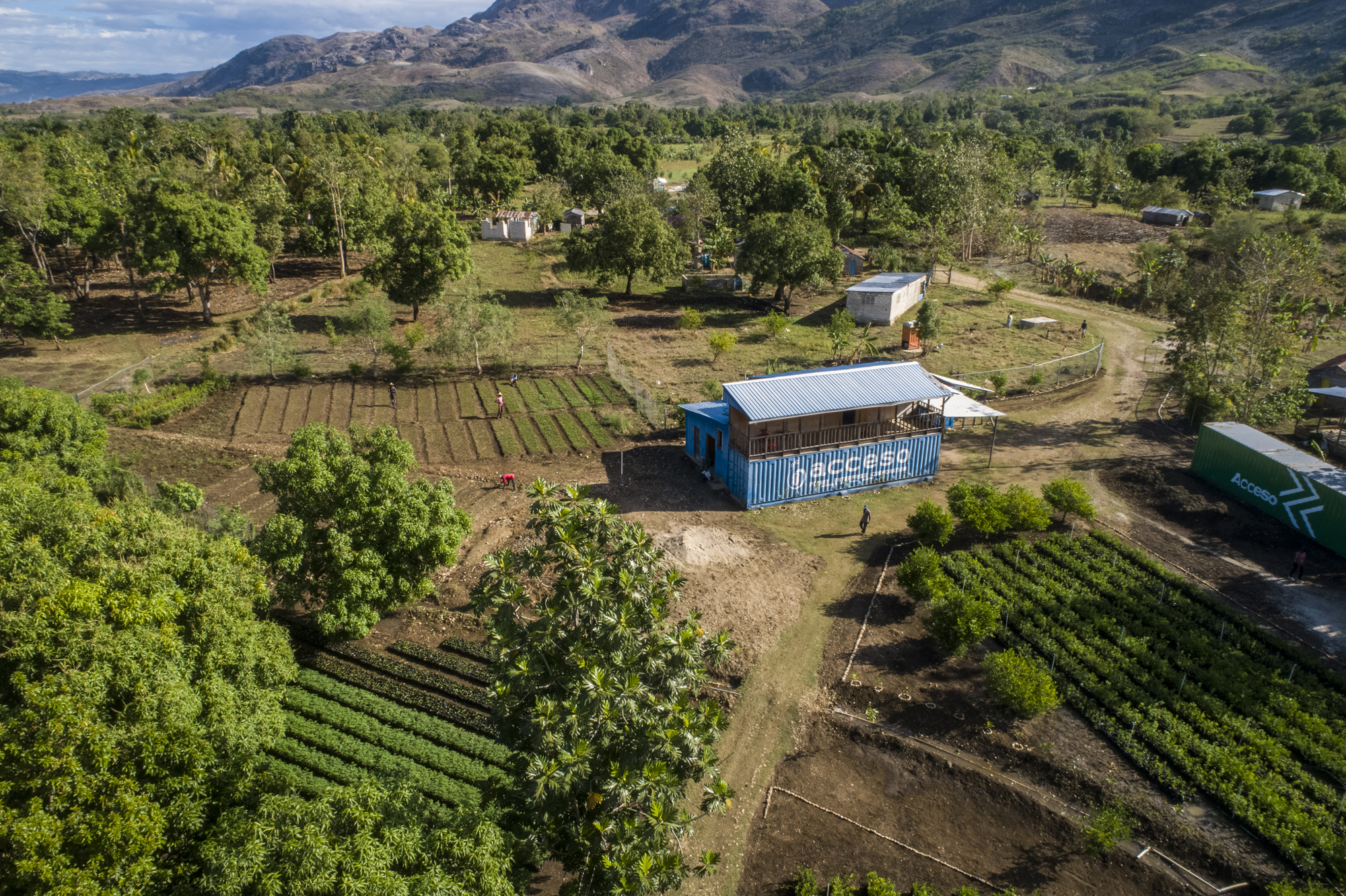
A social enterprise founded by the Clinton Foundation is working to change the trajectory of struggling smallholder farms in the Caribbean and Latin America by empowering them to maximize their earnings. With a business model based on keeping both profits and produce local, Acceso is aiming to reduce rural poverty by providing opportunities and stabilizing local food systems. Additionally, by enabling farmers to stay on their land, such enterprises not only bolster the domestic economy, but can also help to slow the accumulation and exploitation of farmland by global capital.
According to Acceso, there are 22 million smallholder farmers in the region living on less than $5 per day. Many of these farms produce less than their capacity due to a lack of quality seeds, fertilizer and equipment. On top of that, they are largely excluded from the formal markets that are needed for reliable income and instead rely on high-risk informal markets where there is no guarantee that their crops will sell, let alone fetch a fair price. With such a precarious place in agriculture, it’s no wonder many of these farms get sold off as farmers and workers migrate off the land.
Acceso wants to change that dynamic by providing opportunities in rural communities that go beyond a subsistence level of income. Citing an average increase in earnings of 250 percent, CEO James Jenkin told TriplePundit: “It’s not just getting them out of poverty. It’s giving them opportunity.” With 65 percent of the world’s working poor employed in agriculture as of 2016, increasing earnings in the industry are expected to have a much more profound impact than they would in other industries.

So how does the enterprise work? Acceso — which Jenkin refers to as a benevolent social business — works with farmers “from seed to market” beginning with training to improve their yield and, when necessary, access to agricultural technology. Farmers are encouraged to focus on multiple crops as a part of risk mitigation. Jenkin explained, “The old thinking was if a farmer grew coffee, connect them with the coffee market. Now we add in more crops, so that de-risks because we can have multiple buyers.”
In fact, risk mitigation is a lot of what Acceso does. “We provide seedlings and fertilizer and we make sure that what they plant has a buyer already.” That’s a huge deal considering that only 10 percent of smallholder farmers are estimated to have access to quality seeds.
Still, when it comes to increasing capacity, Jenkin said, “That only gets them so far. They’re disconnected from formal markets that pay more and are more consistent. They’re capable of producing for formal markets but they’re excluded.”
Jenkin further described this problem as an access issue, and the reason Acceso focuses on multiple buyers and diversity in crops. “What we really do is very much focus on market architecture to connect them to formal markets. . . looking at what the market needs and developing their capacity accordingly.”
It’s a transformative change for farmers, as Jenkin put it. Being able to get quality inputs on credit, which they only pay back at harvest, is a gamechanger. Furthermore, Acceso connects them to formal markets by buying that harvest from them. As a result, not only are farmers guaranteed a livable income, but they no longer have to worry about transporting what they produce to informal markets or how much of it will go to waste.
“We pay farmers first,” Jenkin said in regard to how he hopes to ensure fair, livable wages for farm workers. “We’re not there as a watchdog, but as a relationship. We work with them on how to manage agricultural labor.”
Many of the communities in which Acceso is involved also stand to gain from agricultural jobs that are being brought in by the business. “We’re building processing plants in the communities. So, money and people stay,” he said. Expounding further on the reality that most migrants don’t want to leave their homes and families but have zero opportunities where they are, he described their departures as a difficult choice but an absolute necessity.
In addition to keeping communities intact, Acceso also values keeping the food in the communities where it is grown as a part of systematic change. “We believe in building local food systems,” Jenkins said. “We believe that food should never need to be imported.”
Smallholder farms produce 80 percent of the world’s food and as such play a critical role in the future of the planet and its people. Likewise, the World Bank claims that agricultural improvements could be a boon for the 80 percent of people living in poverty globally. With a third of the food harvested worldwide going to waste, Acceso’s system could help mitigate what is lost when farmers are relegated to informal markets while protecting them from being forced to migrate off their land and thus also reducing the amount of arable land be scooped up by global capital.
Image credits: Fernanda Pineda and Hanz Rippe

Riya Anne Polcastro is an author, photographer and adventurer based out of Baja California Sur, México. She enjoys writing just about anything, from gritty fiction to business and environmental issues. She is especially interested in how sustainability can be harnessed to encourage economic and environmental equity between the Global South and North. One day she hopes to travel the world with nothing but a backpack and her trusty laptop.














